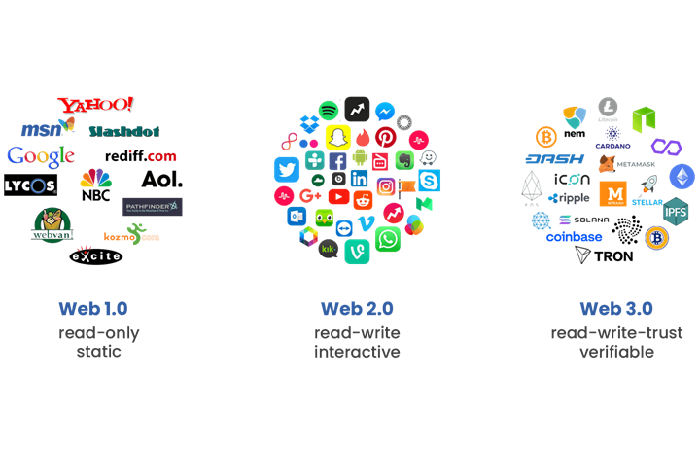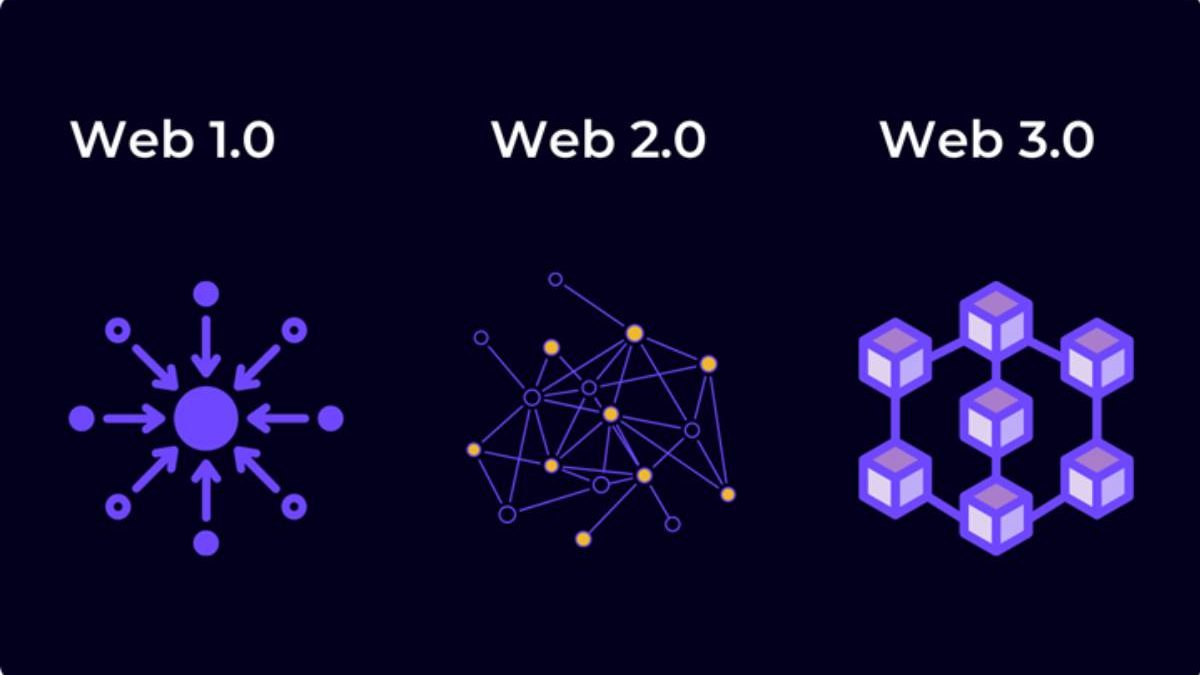The so-called third “generation” of the Internet, which would decentralize content regulation, empower new AI processes, embrace the metaverse, and accept digital currencies as its principal payment mechanism, seems to be closer than we believe. If you’re a seasoned Internet user, you’ve undoubtedly already heard the phrase Web 3, or Web 3.0. Web3 combines the advantages of the current Internet with security, privacy, and other features that may change how the web is used today.
Let’s examine Web3’s history, instances from today’s society, and how Web3 could reshape the future of the Internet.
Table of Contents
Web3 Definition
One of the most current Internet technologies, Web3, combines blockchain, AI, and machine learning to enable real-time human communication. People will be able to own and control their data through Web3, as well as receive paid for the time they spend online. The next generation of the Internet will leverage decentralization to dismantle walled gardens and return control to people.
The third phase of the Internet is also known as the “read/write/own” phase. Instead of using free tech platforms in return for their personal data, like Facebook and Instagram do, users may take part in managing internet protocols directly. This implies that consumers are moving away from being only information providers and toward becoming shareholders and participants.
Web3’s Core Features
Security: Instead of using a username and password to log in, Web3 users often use a private key. Because of this, you may keep and validate your credentials without having to rely on a third party authority.
Resilience: Web3 relies on a distributed network of nodes rather than a small number of centralized servers to increase resilience. These nodes are often privately owned, geographically distributed, and autonomous.
Private: Private communication between Web3 users and independent Web3 nodes occurs behind closed doors, giving you total control over your data. On a central server, information cannot be censored by a single entity.
Open: Anyone may access information thanks to Web3’s permissionless and transparent approach, regardless of their location, country, age, gender, or other characteristics.
How does Web3 work?
Several Web3 technologies are currently in use today, but they are simply the beginning of what is conceivable in the years to come. The capabilities of these platforms and the range of choices offered to customers will grow as blockchain technology, cryptocurrencies, browsers, and other components of the Web3 ecosystem mature.
Both centralized databases for storing application information and a centralized web server for backend processing are absent from Web3. Instead, a blockchain may be used to develop programs that are maintained by anonymous internet nodes and operate on a decentralized server.

Web3 in the future
The creation of new technologies will determine how Web3 develops. Observe the following patterns in the upcoming years:
Metaverse: Web3 technology may be crucial to the metaverse’s development. Play-to-earn (P2E) games might make it feasible to make money in virtual worlds, while NFTs could make it possible for virtual assets to travel across metaverse platforms.
Browsers: Brave, Opera, and a few other specialized browsers support Web3 protocols like Tor or IPFS, but Chrome, Firefox, and Safari implementing these protocols may significantly boost the uptake of these technologies.
Stablecoins: Facebook’s unsuccessful “diem” stablecoin might serve as a springboard for future success. Future initiatives might produce stablecoins backed by physical assets by enlisting institutions, enabling frictionless transactions without middlemen.
NFTs: NFTs have the potential to take asset ownership and microtransactions to a whole new level. For instance, NFTs allow anybody to own a piece of intellectual property (like a single TV program), generating fresh sources of revenue.
The Bottom Line
Web3 technologies are already changing a tiny portion of the Internet, but in the years to come, they may also provide more security, privacy, and other advantages. Anyone with an interest in the cryptocurrency industry should monitor these events, especially if they want to invest in the pioneering individuals and initiatives.
Related posts
Sidebar
Recent Posts
The Best Forex Brokers for Beginners
Since COVID-19 first popped up, interest in the forex market has increased dramatically. Knowing how to get involved with minimal…
Maximizing Success: The Symbiosis of Dedicated Software Development Teams and Product Design Services
The Symbiosis of Dedicated Software Development Teams and Product Design Services In the rapidly evolving landscape of technology, businesses aiming…



